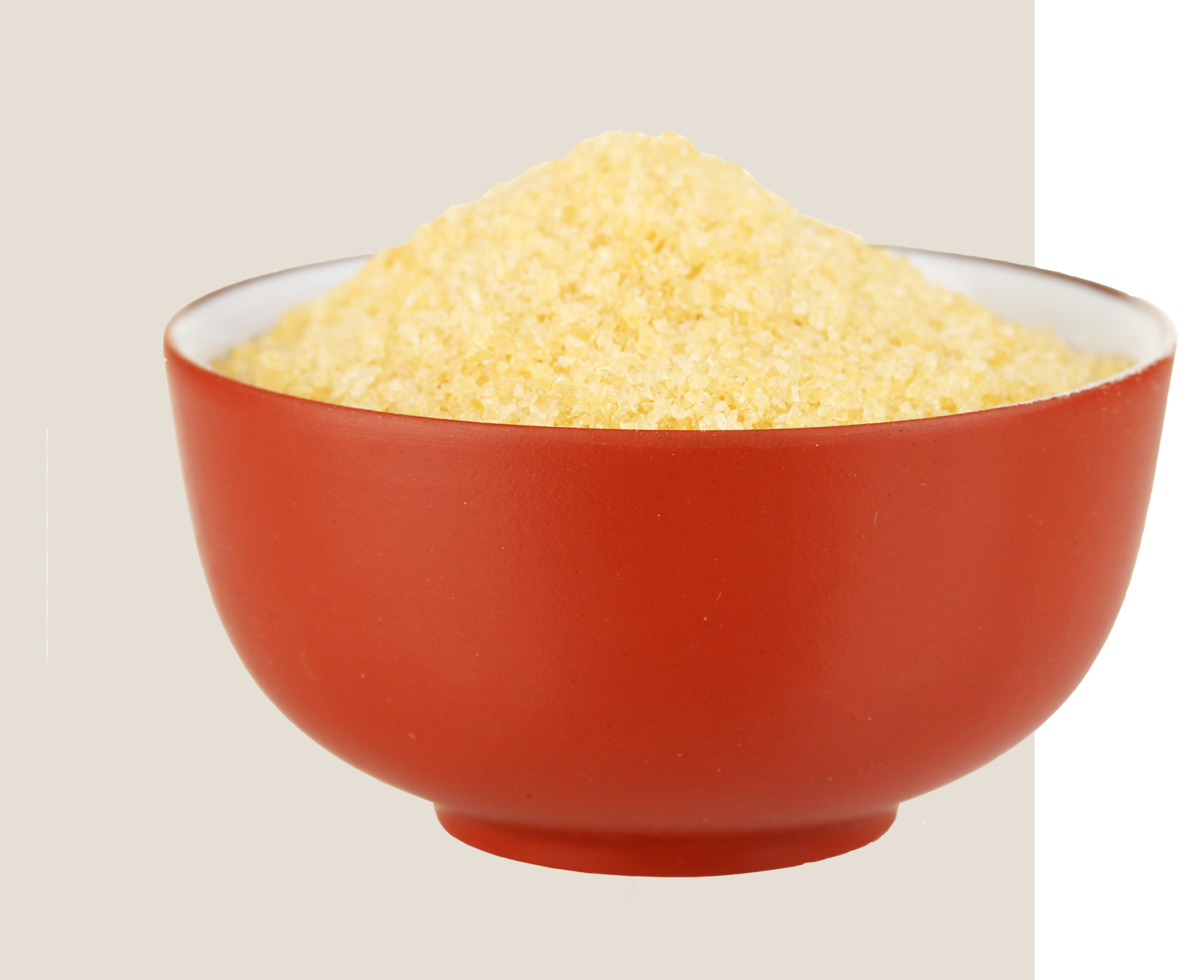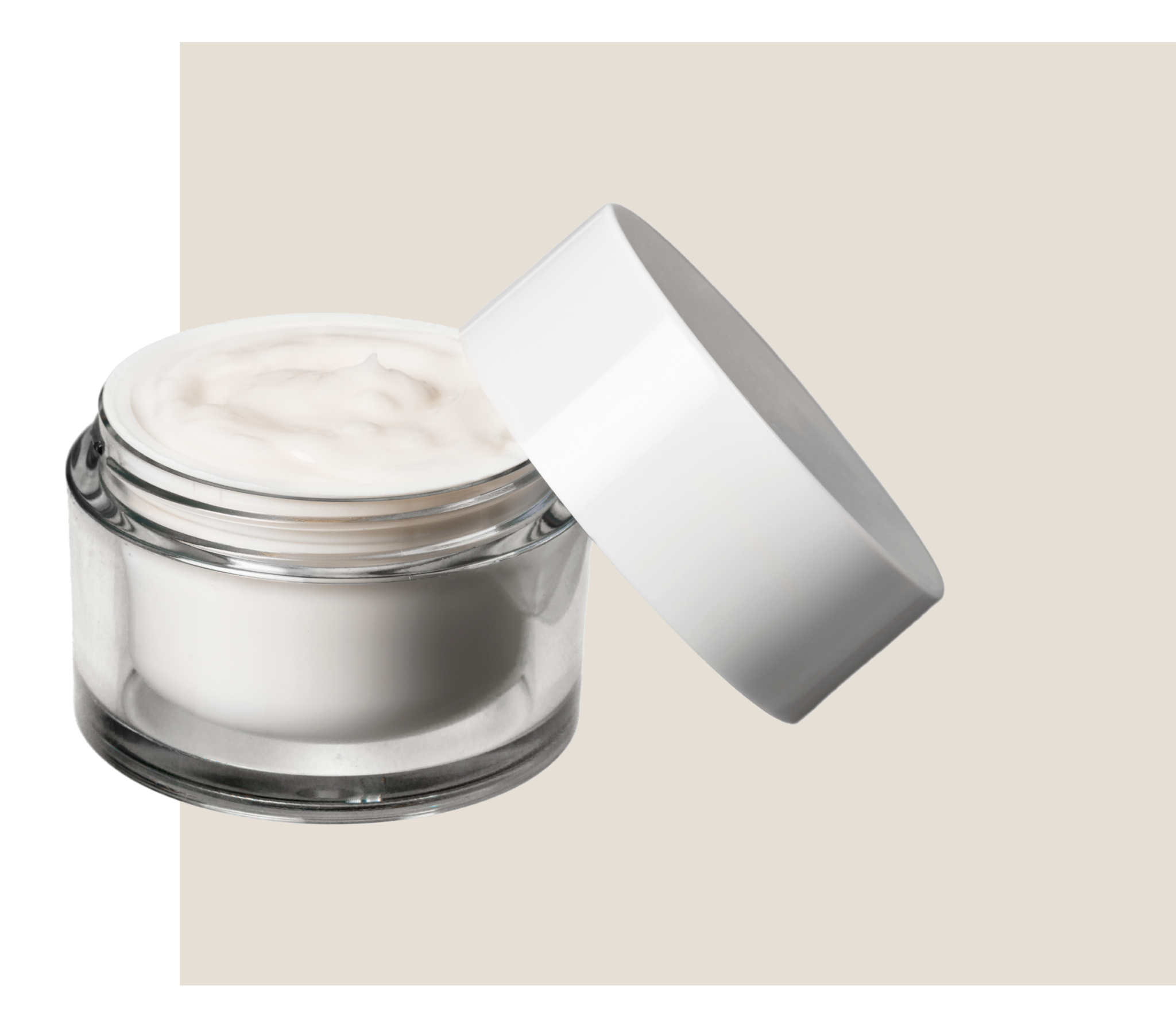Gelatin
Gelatin is a natural product with an amazing range of properties. Used in food production, it is a key ingredient that gives meals the right consistency, stability and texture. Thanks to its natural origin and gelling properties, it is a widely valued part of technological processes.

What is gelatin?
Gelatin is a natural protein of animal origin, obtained mainly from collagen contained in tissues (skin, cartilage and bones).
It is in the form of a light, aroma-free and tasteless powder with a slightly yellowish tint. Its greatest advantage is its ability to dissolve in water, allowing it to form gel-like structures. Thanks to these properties, gelatin is widely used in the food industry, where it acts as a thickening, stabilizing and emulsifying substance.
Quality of gelatin
The quality of gelatin is measured by a hardness index called gelatin Bloom strength. The higher its level, the better the gelling properties of the product.
Gelatin with a Bloom of 170 or higher has optimal gelling properties and is suitable for a wide range of industrial applications. This type of product is particularly appreciated in food production, where achieving the right texture and consistency is crucial.

What is gelatin made of?
The production of gelatin is a multi-step process that begins with the selection of collagen-rich raw materials such as skins, bones and cartilage from animals – mainly cows and pigs. First, these materials are thoroughly cleaned and prepared for further processing. The next step is hydrolysis, i.e. the breakdown of collagen using hot water or special acid solutions, which allows the collagen fibers to be separated. The product is then filtered and sterilized several times to remove any impurities. The final step is drying, after which pure, dry gelatin powder is produced.

Is gelatin healthy?
Gelatin, which is a rich source of amino acids such as glycine, proline and arginine, may offer health benefits.
The aforementioned amino acids are crucial for the body, as they help in the synthesis of new proteins that support the regeneration of skin, hair, nails and connective tissue. Furthermore, regular consumption of gelatin enhances collagen production, which in turn can improve skin elasticity and strengthen joints and tendons.
What is gelatin used for?
Gelatin is a universal ingredient that is widely used in the food industry.
Thanks to its gelling properties, it is a key ingredient in the production of sweets such as jellies, marshmallows and desserts, where a firm, elastic consistency is essential. It is also used in the preparation of savory dishes, where it stabilizes the structure of the food and gives it the right form. What is interesting is that gelatin also helps to clarify drinks, including wines and juices.

E441, i.e. gelatin in products
Gelatin, identified by the symbol E441, is widely used in the food industry, where it acts as a thickener and stabilizer, giving products the right consistency. It is used in confectionery, desserts, meat products and dairy products. Due to its zoonotic origin, gelatin is not suitable for people on vegan or vegetarian diets, making it an ingredient to be considered when producing goods aimed at these consumer groups.
Yes, there are many vegan alternatives to gelatin to achieve similar results in desserts and other dishes. One of the most popular plant-based options is agar-agar, extracted from seaweed, which is great for thickening and gelling. Other alternatives include pectin and tapioca. All of these substitutes are plant-based, making them suitable for vegans, allowing dishes to be prepared with a similar texture without the use of zoonotic ingredients.
To ensure long-lasting freshness and to preserve the properties of gelatin, it is important to store it properly. It is best kept in a tightly sealed container, in a dry and cool place, away from moisture and direct sunlight. The optimum storage temperature is room temperature. Avoiding moisture is key, as gelatin can start to clump and lose its gelling properties, which will affect the quality of the final products.
Gelatin is neutral in taste and scent, and therefore does not affect the aroma and flavor of the dishes to which it is added. As a result, it can be used safely in both sweet and savory recipes, without altering their original flavor. The main function of gelatin is to impart the right consistency, form a gel and stabilize the structure, thus achieving the desired effect in desserts, meat preparations or dairy products – without interfering with their taste.
Yes, gelatin is often used in the manufacture of dietary supplements, particularly in capsule form. Thanks to its properties, it is an ideal ingredient for creating gel capsules that are easy to swallow while effectively protecting the content from moisture and light. In addition, gelatin itself contains amino acids that support joint, skin and hair regeneration, so it can also be an active ingredient in supplements that support connective tissue health.
Gelatin is generally considered safe for most people as it does not contain common allergens such as gluten, lactose or nuts. However, as it is created from zoonotic products, people with protein allergies should be careful. It is also worth paying attention to the rest of ingredients of the products consumed, as some foods with gelatin also contain additional substances that can cause allergic reactions.



